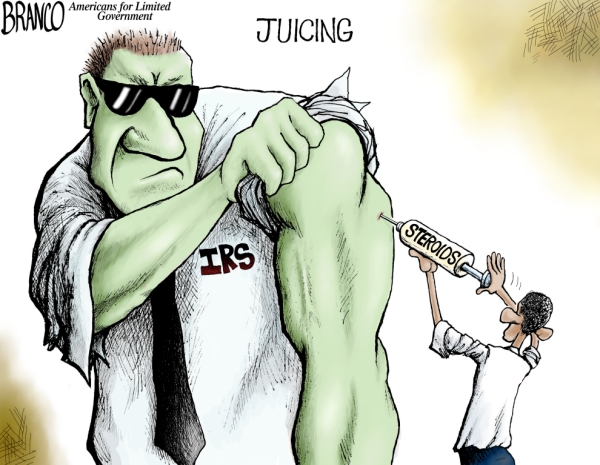By Peter Hong
What’s the second most dangerous pickup line in America? “Hi, I’m from the government and I’m here to help.” The most dangerous, you ask?
“I’m from the IRS, and I’m here to help.”
Yet, that’s exactly what every American taxpayer will be hearing if the “Tax Filing Simplification Act” is ever enacted into law. Introduced by Senator Elizabeth Warren of Massachusetts, this bill would direct our friends at the Internal Revenue Service to fill out your tax returns with information the IRS collects from your employer and your bank. All you have to do is sign on the dotted line — and pay the amount the IRS has so generously pre-determined for you.
Sound too good to be true? It is.
The Warren bill is based on any number of fundamentally flawed premises. First, who in their right mind would trust the IRS to prepare their taxes? As the IRS states on its own website, it is “the nation’s tax collection agency;” its primary function is to squeeze out as much revenue as possible to pay for our $3.7 trillion federal government.
Do you think for a minute that, as it determines your taxes, the IRS would do anything other than maximize your tax liability? If you received a prefilled tax return from the IRS, would you treat it as a request or a demand for payment?
Remember: the IRS has police powers of audit, investigation, litigation, and financial and criminal sanctions. And we find ourselves in an era of a highly politicized IRS. It’s only been four years since the IRS targeting scandal when the agency’s Exempt Organizations unit, led by Lois Lerner, singled out conservative groups for political harassment. Just imagine what your tax return would look like if you found yourself on someone’s bad side at “the Service”
And you’d be on the hook for any errors made on your return — even those due to goofs by the IRS. As former CBO and OMB official Janet Novack stated in Forbes: “whose heart doesn’t race a bit when opening a letter with the dreaded IRS return address?”
Voluntarily surrendering your authority to the IRS for calculating your tax bill is a little like handing your debit card to a mugger and asking for a receipt so you can see the damage. The federal government (of which the IRS is a powerful and dangerous agent) is addicted to tax dollars; like any addict, its answer to the question “how much” is always the same: “More.”
Second, the Warren bill presumes that most Americans are too unsophisticated to fill out their own tax returns. According to a 2014 Associated Press poll, 58 percent of taxpayers surveyed called filling out tax returns “easy,” while 38 percent called the process “hard.” In fact, a Pew Research poll in 2013 indicated that a third of Americans claimed that they “liked” or even “loved” filling out their tax return — a higher share than those who “hated” it. I, for one, do not know any of these people — but apparently, they do exist.
Not surprisingly, the AP poll shows that higher income taxpayers (those with annual incomes over $100,000) find it more difficult to fill out their tax returns because they may have multiple sources of income and more opportunities for deductions and credits. To help them prepare their taxes, wealthier people can afford to hire private tax planners and use software — which has the added bonus of creating jobs and spurring technological innovation.
For those who cannot afford these products and services, a coalition of tax software companies — the Free File Alliance — offers free tax preparation and e-filing software on (of all places) the IRS website. Those earning less than $64,000 per year, more than 70 percent of all taxpayers, are eligible to use FreeFile. Apparently, private industry does not need Elizabeth Warren telling them, the IRS, or the taxpayers what to do or when or how to do it. Nor do taxpayers need Congress to hire the IRS to serve as both tax planner — and collector.
Following the playbook of the political Left, Warren and her allies on this issue point to European countries like Denmark and Sweden as models for America to follow. As Janet Novack notes, the differences between our tax code and those of Europe make the Warren proposal difficult, if not impossible, to administer.
This is not to suggest that the impending movement toward tax reforms should not simplify the tax code — it should. But as polls show, what Americans want most from tax reform is lower taxes and incentives for job creation. And that simply won’t happen under Warren’s plan to make the IRS America’s free tax planner.
If the European experiment teaches anything, it is that nations with return-free systems, like Denmark and Sweden, also impose the highest tax burden on their citizens. The annual chore of filling out tax returns should remind us all of the real cost of big government. Just ask the teenager who notices the chunk of money withdrawn from his or her first paycheck.
Big government costs money — your money. And we must remain vigilant and alert of that fact — even when government comes wrapped in a smiley-face emoticon.
Peter Hong is a contributing reporter at Americans for Limited Government.







